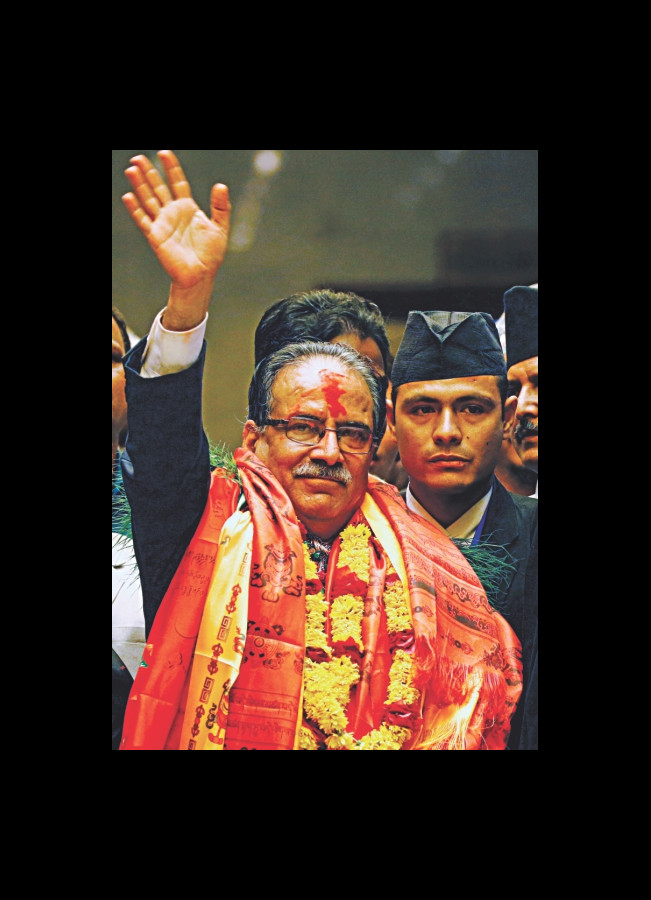
Dahal, whose Maoists are the third-largest force in parliament, pulled out of a coalition led by K P Sharma Oli — the former prime minister — three weeks ago and secured the support of the biggest party, the Nepali Congress.
He also won the backing of the United Democratic Madhesi Front (UDMF) — an alliance of protesting parties — paving the way for warmer ties between the new government and demonstrators from the Madhesi ethnic minority.
Oli, who heads the Communist Party of Nepal (Unified Marxist Leninist), faced fierce criticism over his handling of a months-long border blockade by demonstrators who say the constitution left them marginalised.
More than 50 people died in clashes between police and protesters demanding revisions to federal state borders set out in the new charter.
Commentators say Dahal is likely to be more sympathetic to protesters’ concerns following the Madhesi parties’ decision to back his candidacy.
“Prachanda is likely to address the long-pending issues raised by Madheshi parties… but he will have to bring (his former coalition partner) UML on board in order to amend the constitution,” said Guna Raj Luitel, editor of Nepali daily Nagarik.
Any changes to the constitution must be passed in parliament by a two-thirds majority, making Oli’s UML, which holds 182 out of 595 seats, an important source of support.
‘POWER GAMES’
The new charter, the first drawn up by elected representatives, was meant to bolster Nepal’s transformation from a Hindu monarchy to a democratic republic after decades of political instability.
But continuing discussions between the government and protesters have failed to break the deadlock.
Prachanda will also have to mend ties with powerful neighbour India, which made no secret of its disapproval of the constitution.
Kathmandu in turn accused New Delhi of supporting the border blockade, which sparked crippling shortages of vital supplies across landlocked Nepal.
Meanwhile, some four million Nepalis are still living in tents or huts after an earthquake that killed nearly 9,000 people in 2015.
Stung by criticism over delays, the government has vowed to kickstart the rebuilding of schools and hospitals and speed up distribution of a $2,000 payout to homeless households.
So far, some 42,000 families have received the first $500 instalment of the payout, fewer than eight percent of those left homeless by the disaster.
Nepalis frustrated by the slow pace of reconstruction said they had few hopes for the new government.
“So many who lost their homes in the earthquake are still in shelters. But (politicians) are always busy playing power games,” said Nabin Shrestha, who drives a three-wheeler for a living.
Prachanda will be the eighth prime minister to lead Nepal since 2008, when he became premier for the first time and overthrew a 240-year-old feudal monarchy.
Source: The Daily Star








